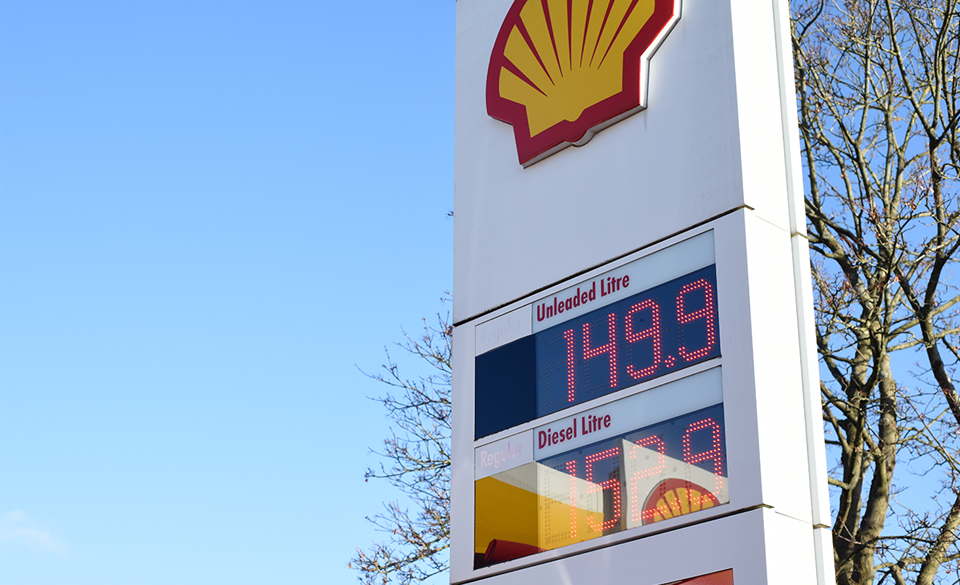New data suggests drivers are taking their cars off the road because they can't afford to run them. A massive 2.7 million vehicles were taken off the road in Britain in 2022, according to DVLA figures. The majority were declared SORN in October, when inflation reached a four decade high of 11.1% and the costs of running a car were soaring.

© Thomas Holt / Shutterstock.com
Data suggests the cost of driving caused a surge in SORN applications in October 2022 alone, when there was a massive 77% jump in drivers taking their car off the road.
Motorists who apply for a Statutory Off Road Notification don't have to pay road tax or insurance, or have an MOT, on condition they don't take their vehicle on a public road.
Weathering the storm
Analysts have suggested many Brits chose to stop driving altogether while trying to weather the storm of the cost of living crisis. This would free up money to spend elsewhere, such as on utility bills and food.
According to the DVLA, the last time there was a large increase in SORN applications was in early 2020, at the beginning of the Covid-19 pandemic and lockdowns. Many drivers chose to take their car of the road when the national travel restrictions were imposed, and people worked from home.
Around 297,700 people took their vehicle off the Road in October 2022, compared with 167,300 in July the same year, according to a report on the Confused.com website. This was the greatest increase during the past four years and a larger number of SORN cars than during the pandemic.
Cost of running a car
The average person spends £220 on their car each month, equating to £2,640 a year, according to data from Compare the Market, the insurance comparison website. The biggest part of this is fuel, which costs an average of £1,400 a year.
The annual cost of running a car has increased from £1,540 since 2018, when the average monthly cost of fuel was £67, compared with £119 in 2023. Monthly car insurance has increased from £31 five years ago to £47 today.
Routine maintenance and servicing was £15 a month in 2018. This has risen to almost £23 a month today and that’s without the additional costs of unexpected breakdowns and major mechanical parts needing to be replaced. The only expense that hasn't increased significantly is road tax.
The study by Compare the Market found that 35% of the 2,000 motorists surveyed were struggling to afford the costs of driving, while around 17% were falling into additional debt just to keep their car on the road.
Electric vs petrol/diesel car running costs
The costs of running an electric car are currently cheaper than running a petrol or diesel vehicle, according to data provided by the Motorway vehicle sales website. However, electric car costs are set to rise in 2025, so it's worth bearing this in mind.
Insurance costs for electric cars are variable, depending on the make and model, as is the case for petrol vehicles, so there may not be any savings by going electric.
Road tax for the average petrol or diesel car is £140 a year. Currently, the first year is free for fully electric vehicles. However, in 2025, this is set to change. Road tax for an electric car will be £165 per year for vehicles registered after 2017.
From 2025, an "expensive car" road tax supplement of £355 per annum will be levied on electric cars for five years for a vehicle that cost more than £40,000. Currently, there's no additional cost for fully electric cars. The change in 2025 will bring them into line with petrol and diesel cars.
The cost of charging an electric vehicle varies, as it usually costs 20% more to charge it at a public charger than it does to use one at your home. The cost of installing a charger at home is around £200, plus the price of your electricity on top of this.
Charging costs will vary, depending on the type of car and the battery size. For example, charging a 100 kWh electric vehicle from empty to full will cost you £65. Charging a 50 kWh EV to full would cost around £32.
An efficient electric car covers an average of five miles for every one kWh, while a less efficient EV might cover only 2.5 miles per kWh. The average price of electricity is 65 pence for one kWh, so an efficient electric vehicle will travel five miles on that kWh.
This equates to an efficient electric vehicle costing 15 pence per mile to run. The average cost of fuel for a petrol or diesel car is between 14 pence and 19 pence a mile. Some experts say it's a myth that EVs will be much cheaper to run, especially if you don't have a home charger.
When will the cost of driving crisis end?
It remains to be seen how long the cost of driving crisis will continue, but it shows no signs of abating yet. Fuel prices at the pump have gone down slightly since their record highs in 2022, with petrol now costing an average of £1.44 a litre and diesel costing £1.45 a litre. However, fuel is still vastly more expensive than it was five years ago, when petrol was £1.18 a litre and diesel was £1.22 a litre.
When the production and sale of new petrol and diesel cars stops in 2030, the jury is still out on whether cash-strapped motorists will move over to electric cars or go for second-hand petrol/diesel vehicles instead to save money on purchasing costs.

